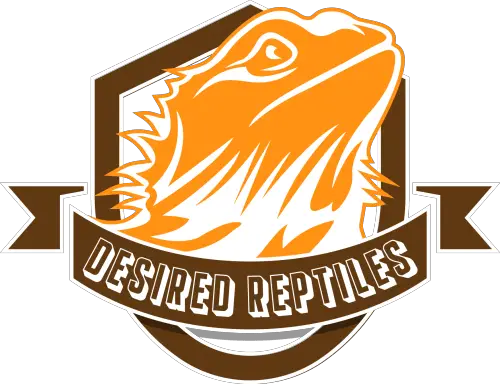As bearded dragon owners, we must carefully consider which treats our pets can enjoy and be cautious when introducing new foods. While bearded dragons can eat a variety of fruits and vegetables, some can be harmful if consumed in excess or even at all. So, is parsley a safe and healthy plant for your beardie?
Bearded dragons should only eat parsley in moderation. Parsley contains compounds that are unsafe for beardies to eat regularly or in large amounts and has little nutritional value. Thus, excessive feeding can cause your pet to fall ill and malnourished.
Several things could go wrong when you feed your bearded dragon treats. In this article, we’ll explore the suitability of parsley for bearded dragons, along with potential risks and benefits of providing it to your bearded dragon.
Should I Feed My Bearded Dragon Parsley? Nutritional Values of Parsley
Bearded dragons eat two categories of plants: staples and treats. Parsley, in this case, is classified as a treat and should be offered to your beardie occasionally. Feeding treats to bearded dragons daily can cause a myriad of problems varying from malnutrition to upset tummies. So, even if your pet does a cute dance every time it sees parsley, offer it only rarely.
The frequency of feeding depends on the treat (herb). Some herbs should be fed once a month while others can be offered every other week. We’ll discuss the suitable frequency and method of feeding parsley to your bearded dragon in a moment. For now, let’s look at its nutritional value.
According to the USDA National Nutrient Database, 100 grams of raw parsley (about 2 cups) contains the following nutrients:
- Calories: 36
- Protein: 2.97 grams
- Carbohydrates: 6.33 grams
- Fiber: 3.3 grams
- Fat: 0.79 grams
- Vitamin A: 4213 IU
- Vitamin C: 133 milligrams
- Vitamin K: 1640 micrograms
- Folate: 152 micrograms
- Iron: 6.2 milligrams
- Calcium: 138 milligrams
- Magnesium: 50 milligrams
- Potassium: 554 milligrams
Fun Fact: The sweet-smelling trait of parsley is due to the presence of an oily organic compound called apiol. Apiol is also found in other herbs like cilantro and celery and has been proven to curtail tumorous and cancerous cells. Small but mighty!
How to Safely Feed Your Dragon Parsley
Herbs should be fed to your bearded dragon carefully to prevent it from falling ill. Below are the necessary guides to feeding your beardie parsley:
1. Prepare the Parsley
Both the leaves and stalks of parsley are safe to feed your bearded dragon. However, the leaves are more nutritious, while the stalks can help clean their teeth. Here’s how to go about it:
- Choose Fresh Parsley: Select parsley that is fresh and free from chemicals as they can upset your beardie’s gut.
- Wash Thoroughly: Rinse the parsley under running water to remove any dirt or residue. This also helps prevent digestive issues including parasitic infections.
- Cut into Small Pieces: Chop the parsley into small pieces to ensure safe consumption. A good rule of thumb is to make the pieces small enough to fit between your dragon’s eyes.
2. Feeding Quantity and Frequency
Offer your bearded dragon parsley every other week to supplement its staple diet, not as a meal on its own. Replacing the nutritious variety in its salad such as dandelion and collard greens with the herb is highly unsafe.
For quantity, parsley should contain 20% of your bearded dragon’s total vegetable intake based on its age. Each stage of your beardie’s life cycle has specific requirements for the ratio of bugs to veggies, which should be strictly followed for healthy growth.
If you’re not sure of your pet’s age and the relative percentage of veggies it needs, the table below will help you clarify:
| Age (months) | Percentage |
|---|---|
| 0 – 3 (Baby stage) | 30% greens, 70% grubs |
| 3 – 6 (Juvenile stage) | 30% greens, 70% grubs |
| 6 – 9 (Subadult stage) | 40% greens, 60% grubs |
| 9+ (Adult stage) | 70% greens, 30% grubs |
For instance, adult bearded dragons can eat an average palm full of greens. With this perspective, 20% is comparable to replacing a quarter of a palmful of veggies with parsley.
3. Dust with Calcium Powder Before Feeding
Calcium supplements (view on Amazon) are essential for every bearded dragon. They help your beardie manage calcium loss caused by compounds like phosphorus and oxalic acid, which are found in parsley and most vegetables. Without these supplements, your bearded dragon is at a greater risk of developing metabolic bone disease.
Quick Facts For Feeding Parsley To Beardies
| Feeding Parsley To Beardies The Right Way | Feeding Parsley To Beardies The Wrong Way |
|---|---|
| Great for eyesight | The risk of a deadly bone disease |
| Has antibacterial properties | Can lead to malnutrition |
| Aids blood clotting | Beardie is at risk of diarrhea |
| Has anti-inflammatory properties | Liver problems due to vitamin imbalance |
| Boosts immunity | Can cause behavioral changes in beardie |

The Benefits of Feeding Parsley to Bearded Dragons
Parsley has been used as a medicinal herb for its immense nutritional value. It has appeared severally in traditional medicine and is still making headway in modern medicine, as well as our dishes around the world. That being said, here’s how parsley can benefit your bearded dragon:
Helps to Sustain Beardie’s Eyesight
The vitamin A in parsley is tremendous. With the little your pet may munch out of the plant, it will be getting sustainable counts of vitamin A added to its daily value. Vitamin A plays a good role in ensuring your beardie’s eyes are healthy enough to pick on the faintest signals. The lack of vitamin A thereof causes your dragon to wear out its retina which leads to blindness with time. So, the more vitamin A, the better sight your pet has.
Parsley Has Antibacterial Properties
Bacteria are everywhere; the enclosure, the flooring, the enclosure decor—everywhere! Your beardie even has salmonella thriving in and around it. While salmonella may not be harmful to your pet, other bacteria strains might be.
Parsley contains organic oils and acids that can help combat bacteria by breaking down their protective barriers. Some stomach upsets may be due to harmful bacteria, and a few bites of parsley might help alleviate the issue. However, it’s important to at first consult your vet for treatment as parsley cannot replace sufficient medication.
Parsley May Help Heal Wounds
Parsley is rich in vitamin K which is associated with blood clotting. When your beardie nicks itself perhaps by scratching against a rough surface, several organic compounds come into play to stop the bleeding and seal the wound. Without sufficient vitamin K, your dragon won’t have the necessary proteins for this process, increasing the risk of bleeding, infection, and blood loss.
Parsley Has Anti-Inflammatory Properties
Inflammation often occurs as a result of injuries, and bearded dragons can be susceptible to this. Parsley contains phenolic compounds that have been studied and shown to reduce inflammation. As a result, your beardie can experience a faster and more comfortable recovery.
Parsley Helps To Boost Immunity To Diseases
Vitamin A, vitamin C, and folate play good roles in boosting immunity. They are all cofactors for enabling the production of antibodies and protecting the cell from dangerous antigens by maintaining the cell membranes. Vitamin C is also an antioxidant that helps in shielding the cells from damage. Hence, incorporating parsley into your beardie’s diet can enhance its immune system.
The Risks of Overfeeding Your Bearded Dragon Parsley
Even for us, parsley is often used as a seasoning as too much of it can overwhelm the meal. The same applies to your beardie, only that in this case, its health is at risk.
Metabolic Bone Disease
Parsley contains high levels of oxalic acid, which can bind to calcium during digestion and metabolism. This can lead to a calcium deficiency, resulting in metabolic bone disease. In some cases, MBD deforms the dragon’s skeletal structure leading to organ failures and death. The video linked below depicts a severe case of MBD in bearded dragons.
Malnutrition
Feeding your dragon too much parsley, which is an occasional herb, simply means your dragon is eating less and less of its staples. This can lead to malnutrition, exposing your dragon to various health issues and potentially costly veterinary bills.
Diarrhea
Parsley has a high water content, which may disrupt your dragon’s digestive system. When your dragon excessively consumes watery foods, it tampers with its nutrient absorption. If this goes on for too long, your dragon will get malnourished.
Liver Problems
While vitamin A is beneficial for your dragon, excessive amounts can stress its liver. Feeding parsley frequently alongside your beardie’s staple diet—which is already saturated with all the vitamins it needs—will cause an overload of nutrients altogether.
Problems with Picky Eating
Not only can bearded dragons eat parsley, but can develop a preference making it difficult for them to eat their essential vegetables. When prolonged, it can cause unnecessary stress for you and your pet, and lead to malnutrition. It’s a minor problem, but it can be quite frustrating to deal with.
Can I Feed My Bearded Dragons Cooked Parsley?
The nutritional value parsley may provide is already minimal due to the small amount your beardie can eat. Cooking it further reduces any potential benefits and alters its texture and taste, which may lead your pet to refuse it. Bearded dragons should only eat fresh, uncooked, and unprocessed vegetables.
